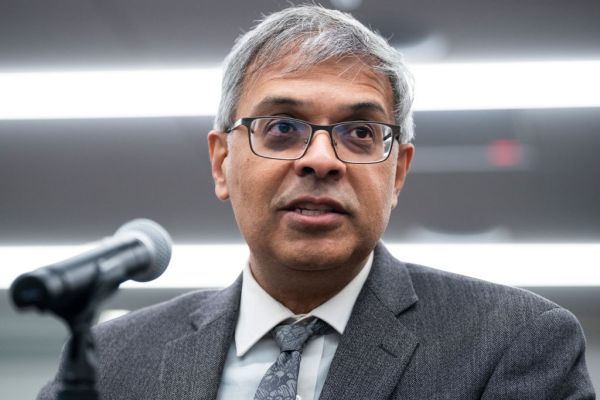Happy Wednesday! If you’re still feeling pumped after seeing Gladiator II, boy do we have an Airbnb experience for you.
Quick Hits: Today’s Top Stories
- South Korea’s opposition parties began taking steps toward impeaching President Yoon Suk Yeol after he declared martial law on Tuesday night. In the face of fierce pushback by opposition lawmakers, members of Yoon’s own party, and protesters, martial law was lifted on Wednesday after the legislature voted unanimously to reject the declaration. The South Korean constitution allows for the president to declare martial law during a national emergency, but it also empowers the National Assembly to overturn the declaration. Yoon justified the move by citing gridlock in the country’s legislature–which is controlled by the opposition party—particularly concerning the national budget, and impeachment proceedings against prosecutors and other government officials. “I will crush the anti-state forces and normalize the country as soon as possible,” Yoon said in a speech Tuesday night.
- The Chinese Ministry of Commerce on Tuesday announced a ban on the exports of rare minerals to the U.S. The materials—gallium, germanium, and antimony—are used in semiconductor manufacturing and a number of defense applications. Exports of graphite will also be subject to stricter controls. “To safeguard national security interests and fulfil international obligations such as non-proliferation, China has decided to strengthen export controls on relevant dual-use items to the United States,” the ministry said in a statement.
- The U.S. Treasury Department on Tuesday issued sanctions on “35 entities and vessels” that facilitate the illegal sale of Iranian oil. The sanctions target a network of oil tankers and ship management firms that transport the illicit oil. The Treasury Department said the move “imposes additional costs on Iran’s petroleum sector,” profits from which the Iranian government uses to fund its nuclear program and its terror proxies that have targeted Israel, the U.S., and international shipping over the last year.
- A Secret Service agent detailed to Treasury Secretary Janet Yellen fired a weapon near Yellen’s home early Tuesday after confronting a group of individuals apparently trying to break into cars along the street. The Secret Service said in a statement that “there is currently no evidence to indicate anyone was struck” by the gunfire, and the individuals fled the scene. The agency also said “there was no threat to any protectees during this incident.
- President-elect Donald Trump’s transition team signed a memorandum of understanding with the Biden administration on Tuesday, allowing the transition team to coordinate with federal agencies to aid the transition. Coordination between the transition and these agencies—typically including those whom the president-elect has indicated he’ll nominate to lead them—apparently typically begins in mid-November, though it’s not clear why there was a delay. The transition team, however, did not sign an agreement with the General Services Administration, which would have provided the team with federal funds to pay for its operations. The Trump team did sign a memorandum of understanding with the Justice Department, which theoretically allows the FBI to begin background checks on people the president has promised to nominate to fill key roles.
Assisted Suicide Laws Are Spreading

For some, it was a step toward ending “profound human suffering.” For others, it was a move to legitimize the state-sponsored death of the sick and vulnerable. Last week, 234 members of Britain’s Labour Party were joined by nearly 100 members of other parties to form a 330-vote majority in favor of a bill legalizing assisted suicide in England and Wales.
If the bill clears the multiple readings and series of amendments needed for a bill to pass British Parliament—a big if—the United Kingdom will join a growing trend in the Western world. Canada, Germany, Spain, and several U.S. states have all recently legalized assisted suicide, and it has been legal in Switzerland, the Netherlands, and Oregon for decades. Advocates of patient autonomy hail these laws as wins for “death with dignity,” and the right for a person to alleviate their own suffering before death. But critics warn that weakening cultural norms against suicide risks creating a slippery slope.
The bill under consideration in the Parliament, formally called the Terminally Ill Adults (End of Life) Bill, was introduced in October by Kim Leadbeater, a member of Parliament for the Labour Party. As a backbench MP who came into Parliament only in 2021, Leadbeater would normally play almost no legislative role beyond voting the Labour line—but she won the ballot for the right to introduce a “private member’s bill,” which is a bill introduced on a single MP’s initiative.
On October 3, Leadbeater announced in the pages of the Guardian that she would be introducing an assisted suicide (or as many advocates term it, “assisted dying”) bill. She cited her experiences with personal acquaintances who chose to kill themselves, alone, with lethal doses of painkillers, afraid of legally incriminating their loved ones.
“Today, somebody with a terminal condition and very little time left has only bad options,” she wrote. “They can suffer in misery and often in great pain as their illness takes their life and dignity from them; travel to Switzerland–usually alone–if they are wealthy enough to pay for it; or take matters into their own hands, as Lisa did, and leave their loved ones to pick up the pieces without being able to say a proper goodbye.”
Leadbeater’s proposed bill would allow terminally ill adults over the age of 18 with less than six months to live—and deemed to be of sound mind—to request lethal drugs from their doctor. After making two separate requests, each assessed by independent doctors, a High Court judge would rule on the patient’s claim. Only then would they be provided with a lethal dose, which they would have to self-administer.
Since the bill’s introduction, Parliament has been consumed by a heated, and often emotional, debate. Prime Minister Keir Starmer allowed Parliament a “free vote” on the bill, allowing MPs to vote their consciences as the government maintains official neutrality. The intense feelings around assisted suicide—as well as the unusual legislative circumstances—have resulted in the formation of surprising alliances.
Religious leaders from across the spectrum have weighed in: Jewish, Muslim, Catholic, Protestant, Hindu, and Sikh clergy and community leaders signed an open letter in October opposing the bill. “Our pastoral roles make us deeply concerned about the impact the bill would have on the most vulnerable, opening up the possibility of life-threatening abuse and coercion,” they wrote.
Disability rights groups are also campaigning against the bill, arguing that it will threaten access to care and services for disabled people. “With so many Disabled people left to struggle in poverty, in homes that don’t meet their needs and having to rely on exhausted family carers, choosing to die may seem like the only viable option,” Inclusion London, an advocacy group, said in a statement.
Nonparliamentary supporters of the bill include nonprofit advocacy groups like Dignity in Dying, and activists armed with stories of struggling to care for relatives who were dying slowly and painfully.
Opposition in Parliament has been led by Labour MP Wes Streeting, the secretary of state for health and social care. In interviews last month, Streeting raised concerns about assisted suicide taking away resources from other parts of the National Health Service (NHS). “If Parliament chooses to go ahead with assisted dying, it is making a choice that this is an area to prioritise for investment,” he told the Times. “And we’d have to work through those implications.”
Streeting, in breaking ranks with his prime minister, has been joined by other members of Parliament who emphatically do not share Starmer’s center-left agenda. “Any legislation of this kind must robustly safeguard against abuse, and guarantee that those who are seriously ill would not feel coerced or pressured to prematurely end their life,” Jeremy Corbyn, the left-wing archenemy of Starmer within Labour, stated earlier this week. In late November, the two longest serving MPs in Parliament, Diane Abbott, a Corbyn ally, and Edward Leigh, an ultraconservative Tory Catholic, released a joint statement opposing the bill.
Leadbeater has argued that her bill will protect the vulnerable, claiming that its requirements for a doctor and judge to sign off will be “the strictest safeguards in the world.” Some experts who study assisted suicide are more skeptical. “Just the sheer number of cases means that it’s impossible for the High Court to double or triple the number of judges who are going to be looking into assisted suicide,” Alexander Raikin, a fellow at the Ethics and Public Policy Center, told TMD. “That part of the bill isn’t serious.”
Legal protections, then, may not be worth the paper they’re printed on if the state refuses to consistently enforce them. In Canada—which legalized what it calls “medical assistance in dying” (MAID) in 2016—the law stipulates that MAID recipients must be adults, capable of giving informed consent, with an incurable disease that causes “intolerable suffering.”
But in practice, these regulations have not been followed. “In Ontario, a quarter of all MAID providers were found to be violating the main legislation or regulation in some fashion,” said Raikin, citing research by the province’s chief coroner.
“He went to the extent of informing every single Ontario health care practitioner that he had been seeing compliance concerns with the Criminal Code,” Raikin said of the coroner. But the problems continued. In October, the Associated Press reported on internal data from Ontario, as well as messages from private forums for medical care providers, that many who sought and received MAID did not meet the legal standards: a 74-year old suffering from vision impairment and high blood pressure, a diabetic woman in her 80s grieving her husband’s death, and multiple patients who cited homelessness as their main motivation for suicide.
Even with these public controversies, MAID in Canada continues apace. In 2022, more than 13,000 Canadians, or 4.1 percent of all deaths in the country, died at the hands of physicians. In contrast, in 2022 only 853 residents of California, which has a similar population and where assisted suicide has been legal since 2016, requested lethal drugs.
Part of the reason for that may be that in California, as in the proposed British legislation, patients must take the lethal dose themselves. In Canada, doctors can administer it. The difference “is plausibly explained by the fact that the agency moves into the doctor’s hands, and therefore patients can tell themselves they’re not causing their own death,” Dr. Farr Curlin, a end-of-life care specialist who holds joint appointments at the medical and divinity schools of Duke University, told TMD.
But Britain and Canada, unlike the United States, both struggle with overburdened health care systems. In July, Britain’s National Audit Service warned that the NHS faced imminent financial collapse, and Canada’s health care systems are facing massive patient backlogs. Deteriorating standards of care in strained hospitals makes assisted suicide seem more reasonable. “It’s very difficult to find a ray of hope, especially for things that require more care or more support,” said Raikin.
In January, Normand Meunier, a quadriplegic man in Quebec, visited the ER for a respiratory virus, developing a bedsore after being stuck on a stretcher for four days. It became infected, and Meunier opted for assisted suicide. “I don’t want to be a burden,” he told reporters.
Meunier’s death is emblematic of the deeper forces that drive pushes for assisted suicide. “It seems to me of a piece with the cultural emphasis over decades, and even now a few centuries, on each person being the master of his own fate, [and] captain of his own destiny,” said Curlin. “If a patient wants to die, then to many people, it seems as if medicine has an obligation to help them get dead.”
And while opponents of assisted suicide often promote palliative care as a humane alternative, Curlin, who practices such care, doesn’t see it as a solution to the more fundamental issue. “I have been practicing palliative medicine for close to 20 years, and I have never encountered a patient whose objective, difficult, distressing symptoms could not be treated under traditional ethical norms,” he told TMD. “The problem is not that the palliative medicine can’t treat the suffering, it’s that the suffering that people want to treat is a kind of existential suffering, of not wanting to be alive as their bodies break down.”
However, even if assisted suicide is symptomatic of broader cultural trends, its advance in Britain and elsewhere is hardly a foregone conclusion. Before it becomes law, the End of Life Bill must go through two more readings in the House of Commons, including a line-by-line reading in the committee stage, and then survive possible modification in the House of Lords, Parliament’s upper chamber. With a close vote on the first reading, and an unlikely coalition of forces in opposition, many outcomes are still possible.
Whether the bill passes or fails, both sides agree that deep values are at stake. “The principle at stake is that we would cross a Rubicon whereby someone who is terminally ill, according to the definition in the Bill, is assisted by the state to die,” said Meg Hillier, a Labour MP, during the debate in Parliament. “That is a fundamental change in the relationship between the state and the citizen, and the patient and their doctor.”
Worth Your Time
- We’re only at the beginning of the evaluations of Joe Biden’s legacy. Writing for his Substack Sanity Clause, Joe Klein offered his own theory of Biden’s presidency: the permissive father who lacked the strength to truly lead. “Clinton said no to Sistah Souljah,” he wrote. “Barack Obama trashed his pastor. Biden allowed his crazies to romp, unpunished, unscolded. He couldn’t stop his LatinX Activists from promoting open borders. He couldn’t call out ‘anti-racists’ for the racists they are. He never lectured Black Lives Matter on the black lives lost to black gang-bangers, not the police. He couldn’t say, as Peggy Noonan suggested, ‘No boys on girls teams.’ … No, Biden was the ultimate permissive father—here’s where Hunter comes in—in a country nauseated by institutionalized permissiveness. His doddering presence fit the larger image: pop’s around the bend.”
- Writing for The Atlantic, George Packer outlined the defining features of our current political epoch. “The 2024 election has shown that the dominant political figure of this period is Donald Trump, who, by the end of his second term, will have loomed over American life for as long as Franklin D. Roosevelt’s dozen years as president,” he argued. “We are living in the Trump Reaction. By the standard of its predecessors, we’re still at the beginning. … For two and a half centuries American politics alternated between progressive and conservative periods, played between the 40-yard lines of liberal democracy. The values of freedom, equality, and rule of law at least received lip service; the founding documents enjoyed the status of civic scripture; the requisite American mood was optimism. Although reaction has dominated local or regional (mainly southern) politics, it’s something new in our national politics—which explains why Trump has been misunderstood and written off at every turn. Reaction is insular and aggrieved, and it paints in dark tones. It wants to undo progress and reverse history, restoring the nation to some imagined golden age when the people ruled. They want a strongman with the stomach to trample on the liberal pieties of the elites who sold them out.”
Presented Without Comment
CNN: Trump Press Secretary Pick Removed Post Praising [Mike] Pence on January 6, Then Ran for Congress as an Election Denier
Also Presented Without Comment
NBC News: Michelin-Starred Chef Makes Christmas Plea to Thieves Who Stole $30K Worth of Pies
It was “crumby” for Tommy Banks when his van containing $30,000 worth of pies was stolen, but instead of begging for his products to be returned to him, the Michelin-starred chef has appealed to the thieves to donate them to people in need.
“I know you’re a criminal, but maybe just do something nice because it’s Christmas and maybe we can feed a few thousand people with these pies that you’ve stolen, do the right thing,” Banks said in an Instagram video Monday, shortly after they were taken.
In the Zeitgeist
The top stars of the PGA Tour and LIV Golf are looking to make nice after years of division in the sport. The PGA’s Rory McIlroy and Scottie Scheffler will tee it up against Bryson DeChambeau and Brooks Koepka for a “grudge” edition of “The Match” on December 17. Here are the highlights from the ninth edition of the series played earlier this year.
Toeing the Company Line
- In the newsletters: Nick wondered (🔒) whether Democrats should recommit to norms or emulate Trumpism in their tactics.
- On the podcasts: Jonah is joined by Free Press columnist Eli Lake to discuss Trump’s selection of Kash Patel to run the FBI.
- On the site: Mike takes a look back at Biden’s term, comedy writer Jeff Maurer examines the challenges of joking about a second Trump presidency, and Jonah diagnoses the media’s problem.
Let Us Know
How do you feel about assisted suicide legalization?
Correction, December 4, 2024: This newsletter originally misspelled Alexander Raikin’s last name.








Please note that we at The Dispatch hold ourselves, our work, and our commenters to a higher standard than other places on the internet. We welcome comments that foster genuine debate or discussion—including comments critical of us or our work—but responses that include ad hominem attacks on fellow Dispatch members or are intended to stoke fear and anger may be moderated.
With your membership, you only have the ability to comment on The Morning Dispatch articles. Consider upgrading to join the conversation everywhere.